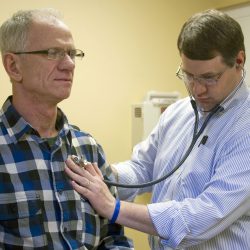Living to Serve and Make an Impact Daily

The inspiration for Matthew 25 comes from a verse in the Bible in which Jesus reveals, “in so far as you did this to one of the least of these brothers of mine, you did it to me.” Dr. Brad Isbister and the rest of the staff at Matthew 25 keep this in mind every day. Indeed, it is featured prominently in the waiting room and is visible to the 6,800 patients that walk through their doors annually.
In their mission to provide free medical and dental care to “the poorest of the poor” in Allen County, the staff faces unique challenges. Among those they care for, Dr. Isbister lists the uninsured, the underinsured working poor, and immigrants who speak little English.
Dr. Isbister believes that trying to make “health become a priority” is one of the first steps to helping his patients see “significant improvements in their wellness.”
The people that come to Matthew 25, according to Dr. Isbister, are people “without any alternative.” Unfortunately there seem to be more people than ever with nowhere else to turn, as the Clinic’s number of patients is on the rise this year.
…the people that come to Matthew 25…are people “without any alternative.”
Personally, Dr. Isbister finds his role immensely rewarding. He considers his job of caring for the least of his brothers every day as a privilege. Kiddingly, he describes it as “cheating at getting the chance to help people,” since he has the opportunity to directly change people’s lives and see the results in his daily work. Not everyone is so fortunate.
The care provided at Matthew 25 is undeniably critical. Something like simply preventing the debilitating pain of severe headaches allows people to carry on with their lives and care for themselves and their families.
Dr. Isbister highlights the much wider impact “that one healthy person has on their social network.” On the Poor Handmaids of Jesus Christ and The St. Joseph Community Health Foundation, Dr. Isbister says, “Their legacy continues to be an enormous one at Matthew 25.” He notes that the Clinic would be unable to continue its work were it not for such grants, since it receives no public funding.
Dr. Isbister and Matthew 25 exemplify many of the Poor Handmaids’ beliefs and values, but perhaps none more than “responding to the needs of the time,” of which healthcare, especially for the poorest of the poor, is surely one of the most important.
Written by: Charlie Klingenberger, Communications Intern
